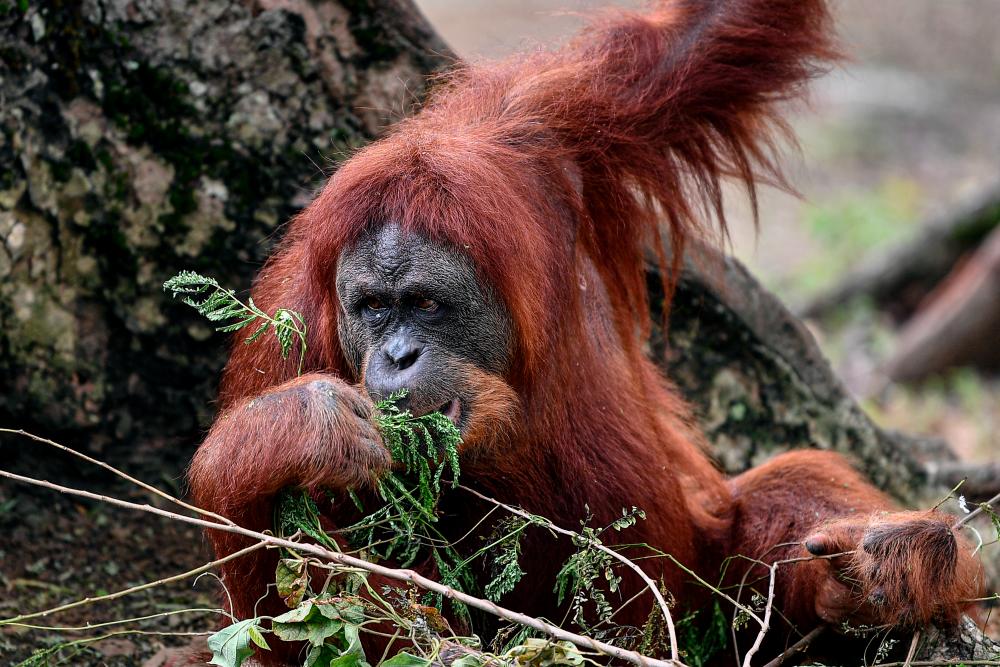PETALING JAYA: People for the Ethical Treatment of Animals (Peta) yesterday congratulated the government for reversing its earlier plan to give orang utans as gifts to major trading partners that buy the country’s palm oil.
Peta vice-president Jason Baker was commenting on Commodities Minister Datuk Seri Johari Abdul Ghani’s statement on Aug 18, where he shelved his earlier plans to generate the same goodwill as China does with its “panda diplomacy”.
Johari said conservation groups opposed the idea of sending orang utans for adoption to oil palm importing countries.
“We have decided to keep our orang utans in their natural habitat,” he said after launching the World Orang Utan Day celebration organised by the Malaysian Palm Oil Green Conservation Foundation at the Sepilok Orang Utan Rehabilitation Centre in Sandakan on Aug 18.
Baker said Peta is pleased that the Malaysian government is embracing the suggestions it had long been advocating by deciding to keep Orang Utans in their natural habitats.
“As I recently wrote in an op-ed in theSun, countries can establish ties and foster international relations without harming animals and putting their lives at risk.
“This decision by the government reflects a progressive approach to diplomacy and one that prioritises conservation over exploitation, which we have consistently encouraged in our discussions on this issue.
“By adopting these policies, Malaysia is setting a strong example for the ethical treatment of wildlife and we hope other world leaders will follow Malaysia’s example.”
Baker said to show its appreciation, Peta will be delivering vegan, palm oil-free cookies to Johari as an acknowledgement of his commitment to animal welfare and looks forward to further positive steps to safeguard Malaysia’s dwindling wildlife numbers.
He also reiterated his call for Malaysia to prioritise collaborative efforts to combat international wildlife trafficking and devote resources to habitat preservation.
“There are no benefits to treat animals as political trinkets. Whether they are born in captivity or taken from their natural habitat, they are removed from surroundings they have grown familiar with and are torn away from their friends and family.
“They are then forced to adjust to new routines and an unfamiliar environment. The climate of the country they are sent to may be entirely inappropriate and their care and treatment may be difficult to monitor.”
Baker said such gestures never end well for the animals and two recent cases drew international criticism.
He said in 2013, the Mali government gave France a camel which was later slaughtered for a feast and last year, Thailand demanded the return of an elephant which was given to Sri Lanka due to alleged mistreatment.
Baker said while conservationists are proud and relieved over Johari’s change in stance on the orang utan diplomacy issue, they hope this will be the start of a new chapter where Malaysia is at the forefront of wildlife protection.
“Human-wildlife conflicts due to encroachment is something Peta is concerned about. We urge the government to institute proper planning for housing and infrastructure so that the country’s amazing wildlife will not be further endangered.
“Peta will be very happy to work alongside the government as partners and lend our conservation expertise so that the people and wildlife can co-exist without one or the other facing constant danger.”









